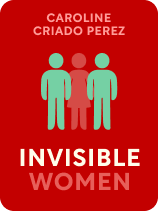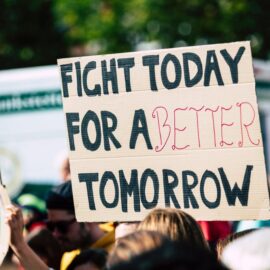

This article is an excerpt from the Shortform book guide to "Invisible Women" by Caroline Criado Perez. Shortform has the world's best summaries and analyses of books you should be reading.
Like this article? Sign up for a free trial here .
Do female refugees have gender-specific concerns? If so, why don’t they report them?
Caroline Criado Perez, the author of Invisible Women, contends that sometimes female refugees suffer from sexual violence by male authority figures. It’s also not easy to support it because of certain taboos and a lack of support.
Read below for gender-specific issues that female refugees could potentially face.
How the Gender Data Gap Affects Female Refugees
The gender data gap doesn’t just reinforce the male-as-default mindset and harm women’s safety in public transit. According to Perez, it does the same in the field of disaster response. To demonstrate, she points to the sexual violence experienced by female refugees.
As Perez notes, female refugees have a gender-specific concern. Reports from several humanitarian agencies and news organizations suggest that women experience rampant sexual violence at the hands of the male authority figures they encounter—like the aid workers in refugee camps.
Perez attributes this violence to a cycle caused by the male-as-default mindset of the institutions that hire these workers. These institutions design facilities for the average displaced person. In other words, the average displaced man. As such, they don’t consider gender-specific concerns and hire male authorities without considering the possibility that they might violate their female charges.
However, these male authorities do violate their female charges—and it continues, according to Perez, because of a gender data gap. Women who experience sexual violence from male authorities usually don’t report it due to various concerns, such as a cultural taboo against discussing sex with men. Perez contends that due to this lack of data, the institutions that hire male predators don’t see how hiring them damages women—and so they continue to keep them in power.
In this way, this gender data gap reinforces the male-as-default mindset that assumes that these institutions work for the average woman as well as they do for the average man—and ultimately puts the safety of female refugees at risk.
How Hiring Female Authorities Reduces Violence
Official reports support Perez’s contention that institutions are generally unbelieving of the gender-based violence women may experience at the hands of authority figures in refugee camps. The UN found that rates of gender-based violence against refugee women increased from their already-high levels in 2020 but provided no information specifically regarding acts of violence committed by authorities against refugees.
Additionally, the UN’s handbook on gender-responsive police services for women and girls subject to violence, published in 2021, suggests several ways to help solve the gender-based violence women experience in general (at the hands of other refugees) but presents extremely limited recommendations regarding how to deal with male authorities who commit violent acts against women.
The UN presents hiring female authorities as a solution to the general violence women face in refugee camps (from other refugees). This is the same solution Perez presents to the violence women face from male authorities specifically.
Why might hiring female authorities reduce violence against women from both other refugees and authority figures? The UN explains that having female police officers regularly patrol refugee camps signals to others that women are strong—and implies that this perception may discourage men from assaulting women they might otherwise have thought were weak. Additionally, the UN notes that hiring more female police officers in refugee camps reduces the data gap surrounding gender-based violence because women are often more comfortable reporting assaults to other women. This is both for cultural reasons and because they think other women will be less likely to victim-blame or not believe them.

———End of Preview———
Like what you just read? Read the rest of the world's best book summary and analysis of Caroline Criado Perez's "Invisible Women" at Shortform .
Here's what you'll find in our full Invisible Women summary :
- How society's male-as-default mindset leads to a gender data gap
- Why cars don't properly protect women during accidents
- Why we don’t know how most medicines affect women






